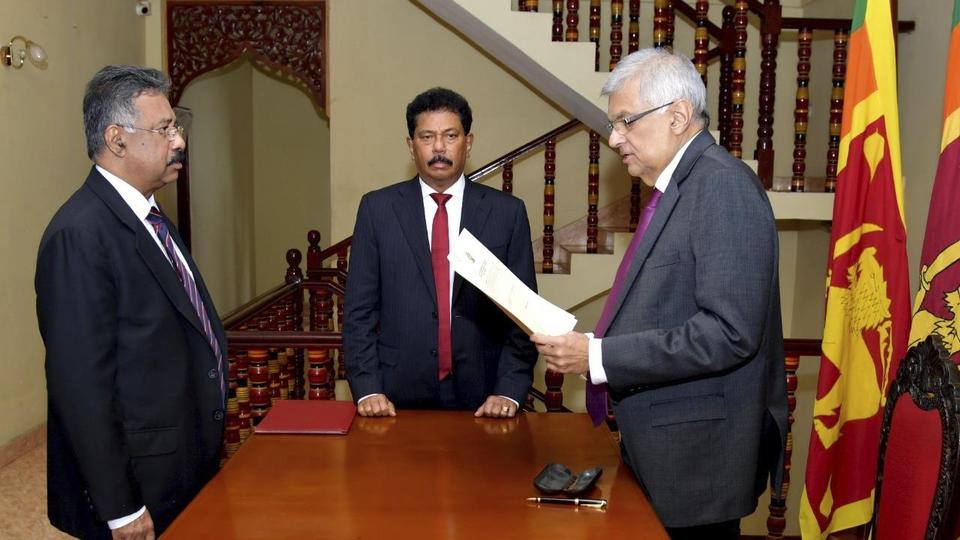After ex-president Gotabaya Rajapaksa fled Sri Lanka and PM Wickremesinghe became acting president, many protesters insisted that Wickremesinghe too should step aside.

Sri Lankan lawmakers have prepared to meet to begin choosing a new leader to serve the rest of the term abandoned by the president who fled abroad and resigned after mass protests over the country’s economic collapse.
Security around the Parliament building in the capital, Colombo, was heightened on Saturday with armed masked soldiers and roads near the building closed to the public.
A day earlier, Sri Lanka’s prime minister was sworn in as interim president until Parliament elects a successor to Gotabaya Rajapaksa, whose term ends in 2024.
Parliament Speaker Mahinda Yapa Abeywardana promised a swift and transparent political process that should be done within a week.
The new president could appoint a new prime minister, who would then have to be approved by Parliament.
In a televised statement, Prime Minister Ranil Wickremesinghe said he would initiate steps to change the constitution to curb presidential powers and strengthen Parliament, restore law and order and take legal action against “insurgents.”
It was unclear to whom he was referring, although he said true protesters would not have gotten involved in clashes Wednesday night near Parliament, where many soldiers reportedly were injured.
"There is a big difference between protesters and insurgents. We will take legal action against insurgents,” he said.
Sri Lanka acting President Ranil Wickremesinghe:
— TRT World Now (@TRTWorldNow) July 15, 2022
- Will establish law and order and follow constitutional process
- Will work to strengthen parliament powers via constitutional adjustments
“Listen to the people”
Wickremesinghe became acting president after Rajapaksa fled Sri Lanka on Wednesday and flew first to the Maldives and then to Singapore. Many protesters insisted that Wickremesinghe too should step aside.
Meanwhile, Sri Lanka’s opposition leader, who is seeking the presidency, vowed to “listen to the people” and to hold Rajapaksa accountable.
In an interview with The Associated Press from his office, Sajith Premadasa said that if he wins the election in Parliament, he would ensure that “an elective dictatorship never, ever occurs” in Sri Lanka.
“That’s what we should do. That is our function — catching those who looted Sri Lanka. That should be done through proper constitutional, legal, democratic procedures,” Premadasa said.
Economic turmoil
Sri Lanka has run short of money to pay for imports of basic necessities such as food, fertilizer, medicine and fuel for its 22 million people.
Its rapid economic decline has been all the more shocking because, before this crisis, the economy had been expanding, with a growing, comfortable middle class.
The protests underscored the dramatic fall of the Rajapaksa political clan that has ruled Sri Lanka for most of the past two decades.
The protesters accuse Rajapaksa and his powerful political family of siphoning money from government coffers and of hastening the country’s collapse by mismanaging the economy.
The family has denied the corruption allegations, but Rajapaksa acknowledged that some of his policies contributed to Sri Lanka's meltdown.
Source: AP
Social media is bold.
Social media is young.
Social media raises questions.
Social media is not satisfied with an answer.
Social media looks at the big picture.
Social media is interested in every detail.
social media is curious.
Social media is free.
Social media is irreplaceable.
But never irrelevant.
Social media is you.
(With input from news agency language)
If you like this story, share it with a friend!
We are a non-profit organization. Help us financially to keep our journalism free from government and corporate pressure












0 Comments